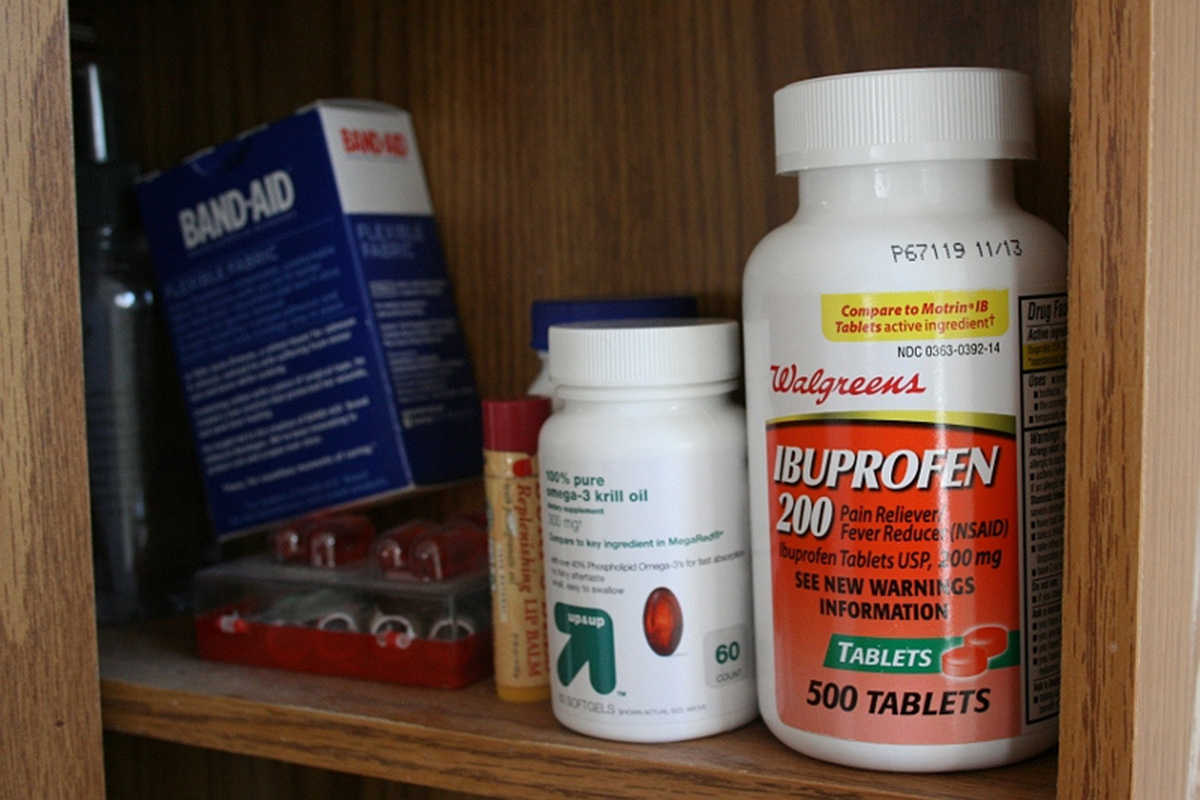Table of Contents
Popping a pain reliever is something many of us do every day, but there are good reasons to be careful with certain products.
Some toxicologists describe ibuprofen as "a stroke waiting to happen." It is true that heavy users of ibuprofen are at greater risk of both heart attack and stroke. They also are at greater risk of kidney damage (especially if they are diabetics) and stomach bleeding.
The problem with ibuprofen is that it raises blood pressure. This medication blocks two enzymes that initiate inflammation and pain, cyclooxygenase-1 and cyclooxygenase-2. These enzymes, however, are also important to regulating blood pressure. Chronic overuse of ibuprofen raises blood pressure, and it is the increased blood pressure that causes vascular problems with the heart, kidneys, and brain.

It is unusual for people to have to be admitted to the hospital for treatment of ibuprofen intoxication unless they have received a massive amount along with "bath salts," but daily users of this pain reliever have up to three times greater risk of stroke.
For use of ibuprofen:
- No one should take more than 1200 mg in a single day.
- No one should take ibuprofen more than three days a week.
- No one should use ibuprofen for more than three weeks. Switch to other pain relievers.
If Acetaminophen And Ibuprofen Are Problematic, What Then Should We Take?
It's not that you should never, ever use acetaminophen or ibuprofen, but if you deal with pain every day, you need to incorporate some alternatives into your daily routine.
Fortunately, the alternatives that work are also available over the counter and are also inexpensive:
- Magnesium usually raises the pain threshold, especially for people who have migraines and cluster headaches. Magnesium isn't a pill you pop when you feel pain coming on. It's something you take every day. More is not better with magnesium. As little as 250 mg a day can make a real difference in the intensity and frequency of most kinds of pain. Taking more than about 400 mg of magnesium at a time, however, can cause digestive upset, notably diarrhea and flatulence.
- Aspirin, if you aren't allergic to it, is OK once a day. If you take Tylenol or Excedrin, substituting Aspirin for one of your pain pills each day not only lowers the risk of toxicity, it also slows down the rate at which your body uses the acetaminophen you do take. The acetaminophen in your other daily pain pills enters the bloodstream more slowly and lasts longer when you take Aspirin. Of course, it's also important not to overdose Aspirin or Aspirin-like herbal products, such as white willow bark.
- Aspirin-like products can be applied directly to the skin over areas of chronic pain. Rubs and creams containing methylsalicylate relieve pain and tenderness caused by sprains, strains, and mechanical injury, and present a very low risk of overdose. Again, don't use these products if you are allergic to Aspirin.
- Capsaicin, the chemical that gives chili peppers their heat, can relieve pain when applied to unbroken skin. You want to be careful not to get the product in your eyes or nose, however, and never to apply it to broken skin.
- Brooks M. FDA Asks Docs to Limit Acetaminophen in Prescription Meds. Medscape Medical News. Available at http://www.medscape.com/viewarticle/819216. Accessed: September 16, 2015.
- US Food and Drug Administration. Organ-specific warnings: internal analgesic, antipyretic, and antirheumatic drug products for over-the-counter human use. Federal Register. 2009 Apr 29
- 74(81). Available at http://edocket.access.gpo.gov/2009/pdf/E9-9684.pdf. Accessed 15 September 2015.'
- Photo courtesy of Sam-Cat via Flickr: www.flickr.com/photos/samcatchesides/3613447415
- Photo courtesy of StarsApart via Flickr: www.flickr.com/photos/meginsanity/6947900337


Your thoughts on this